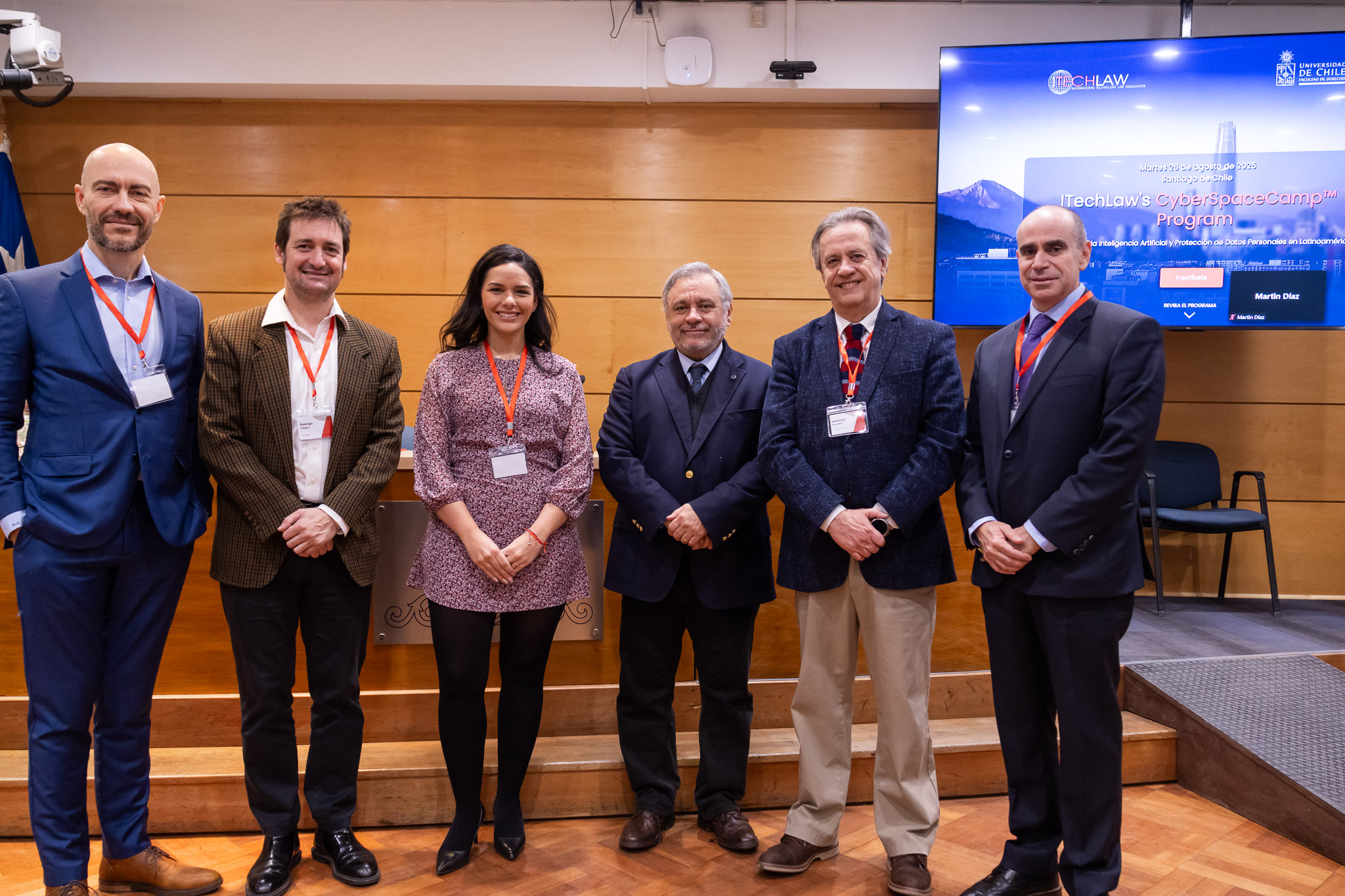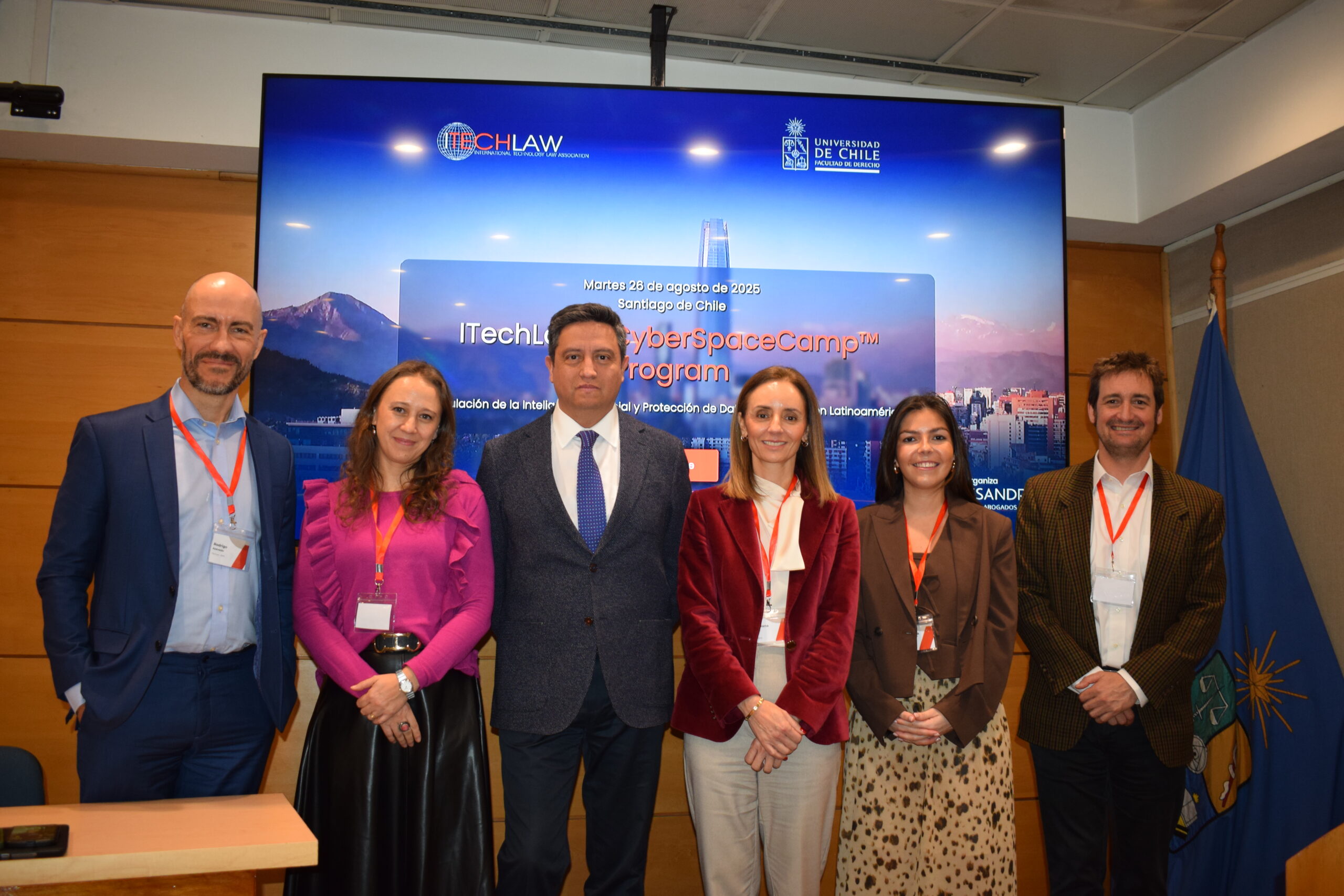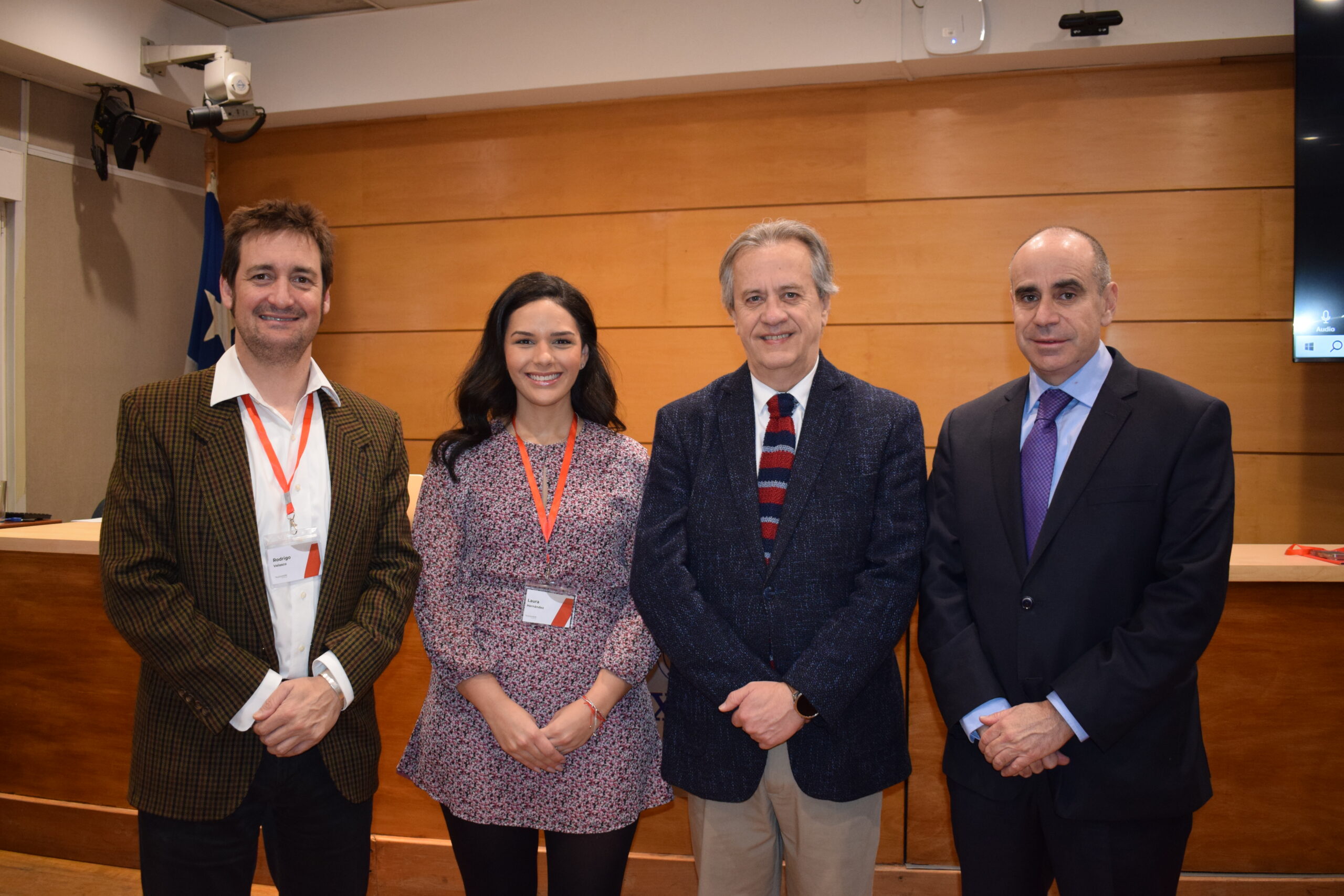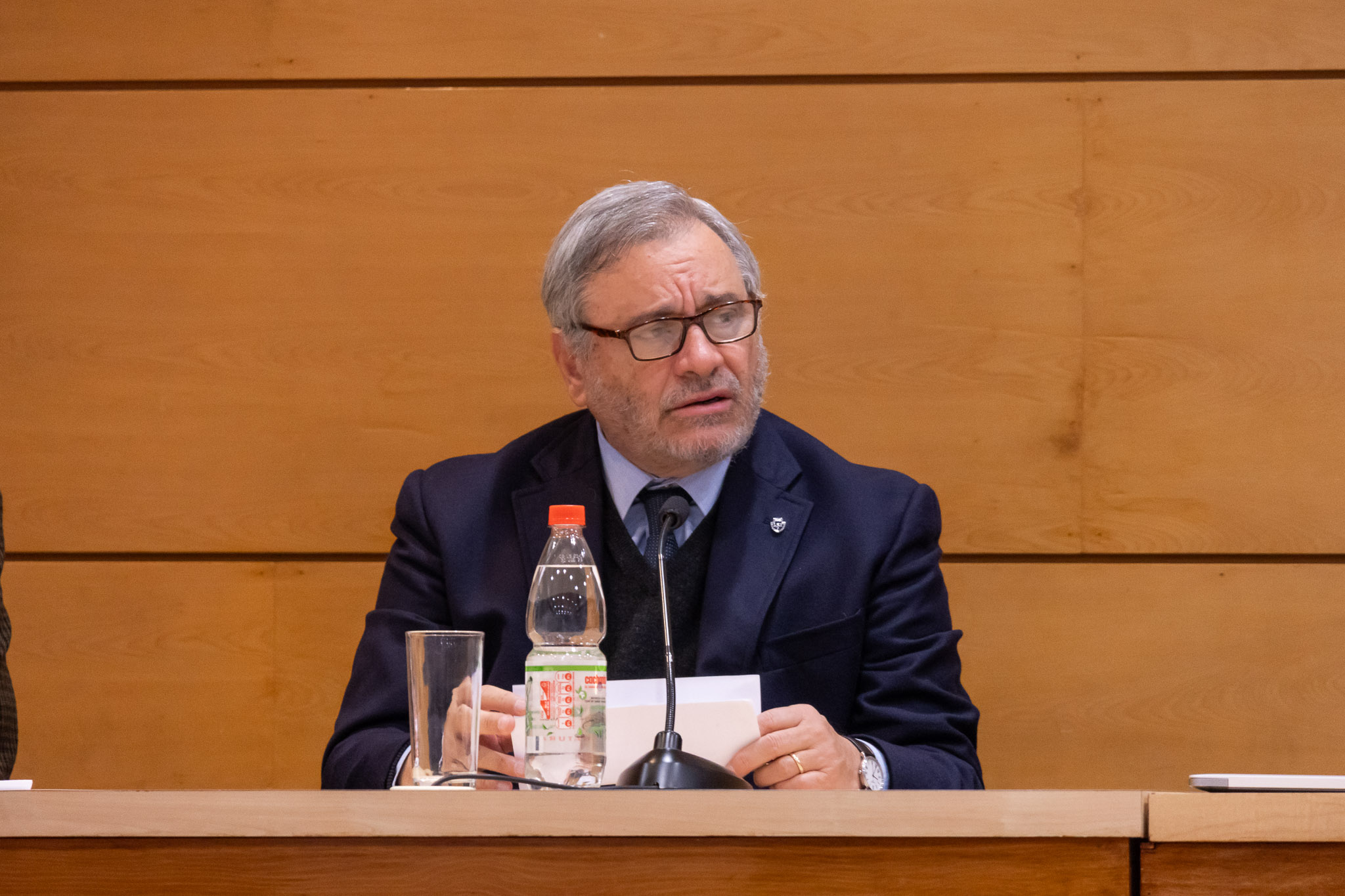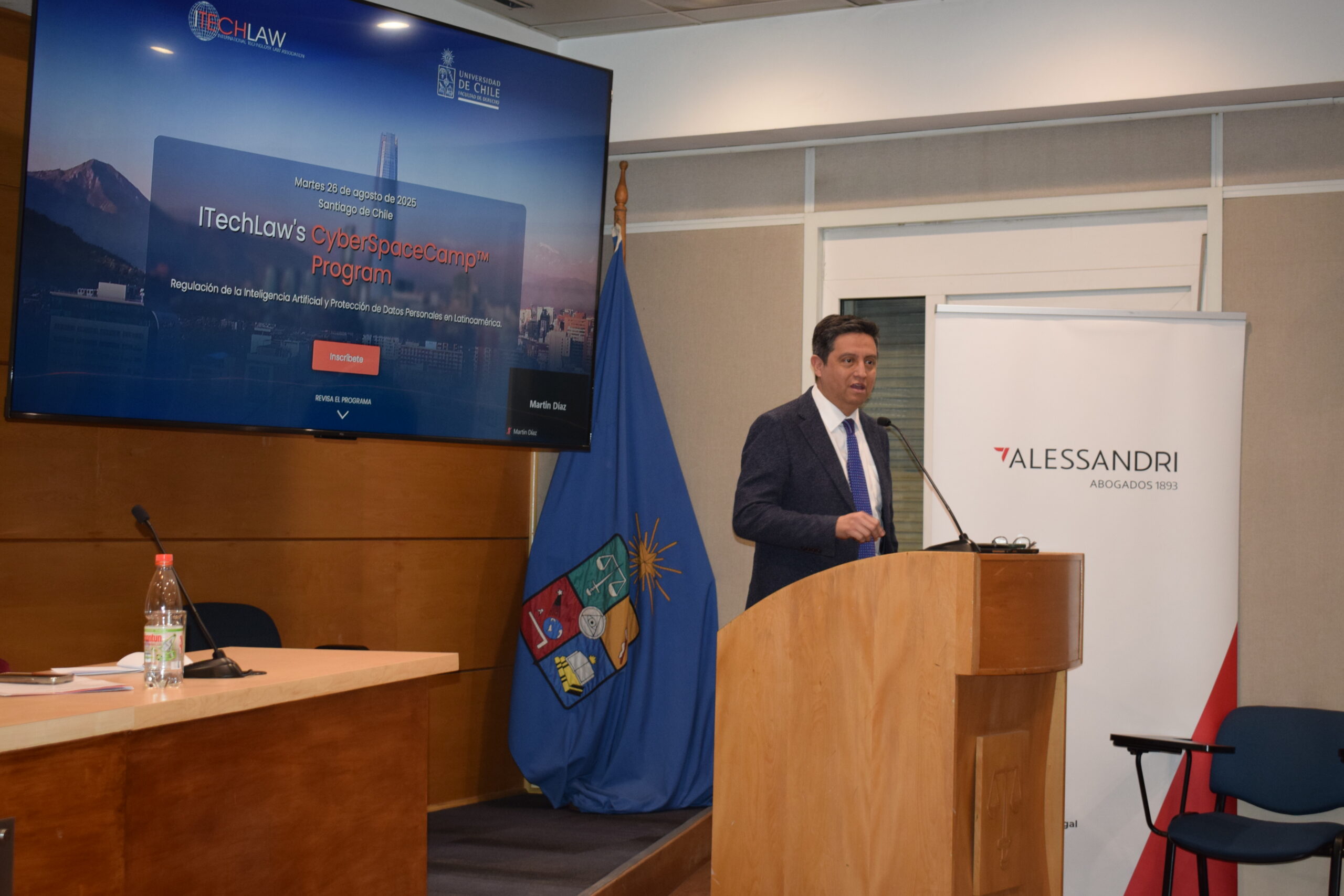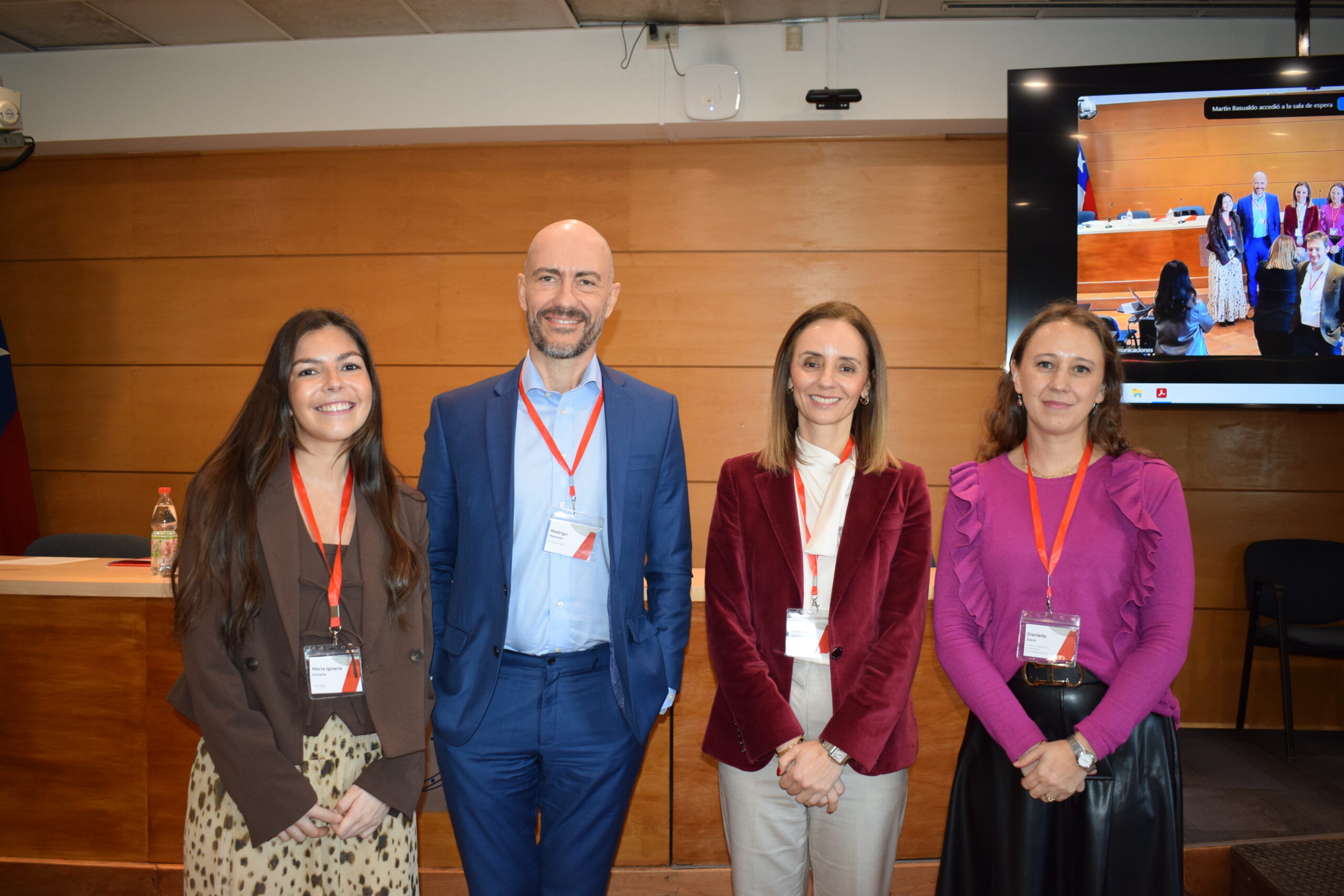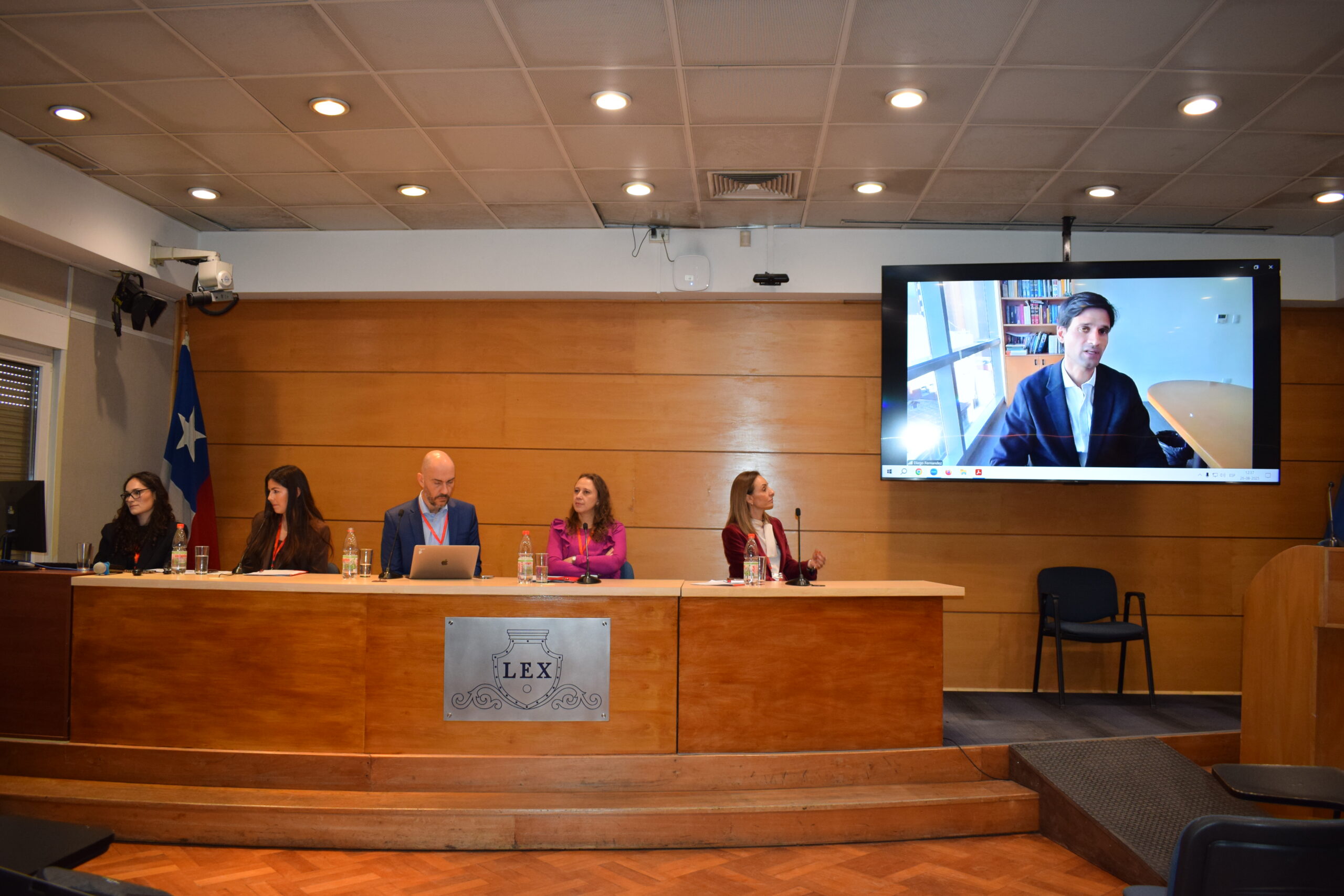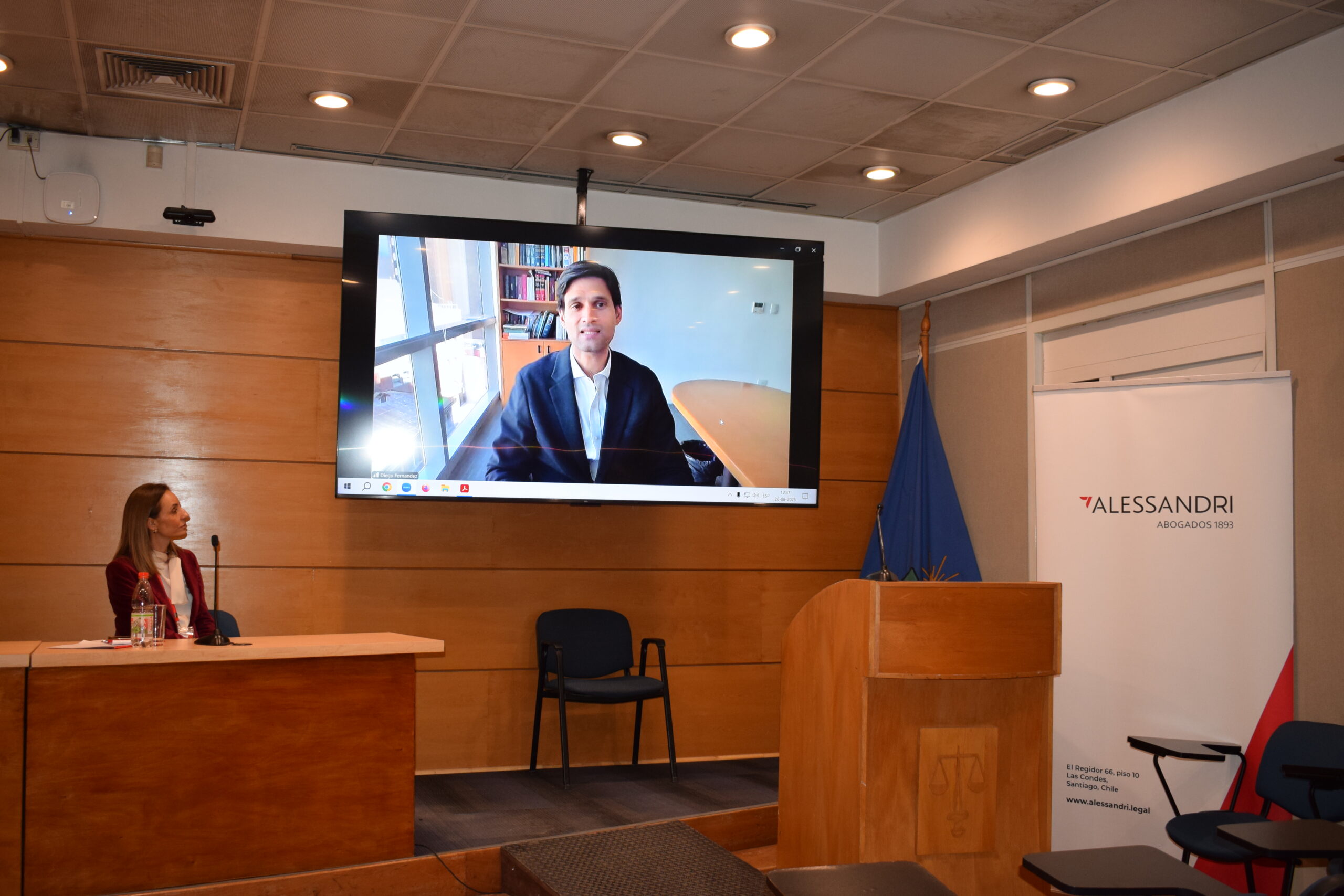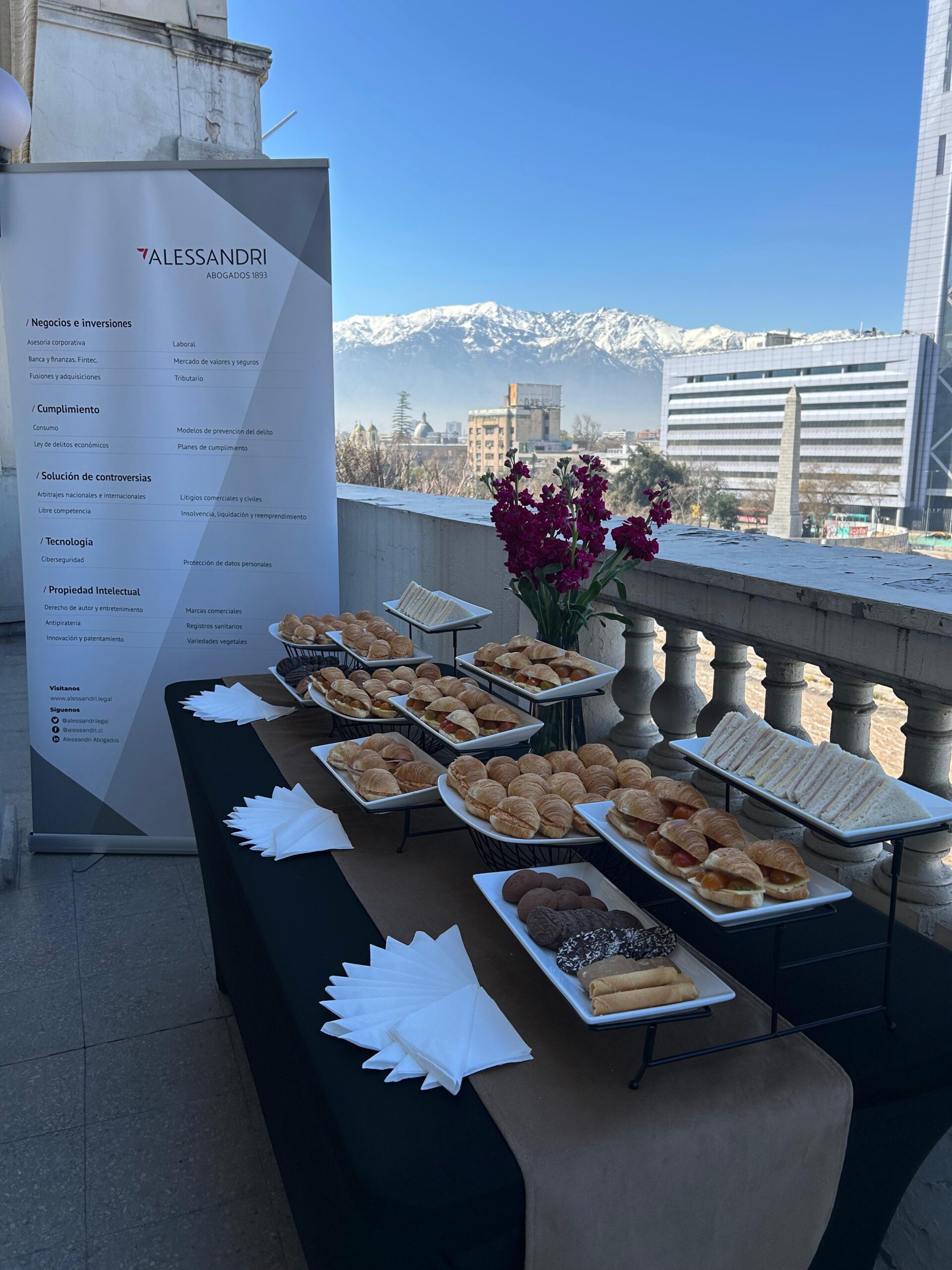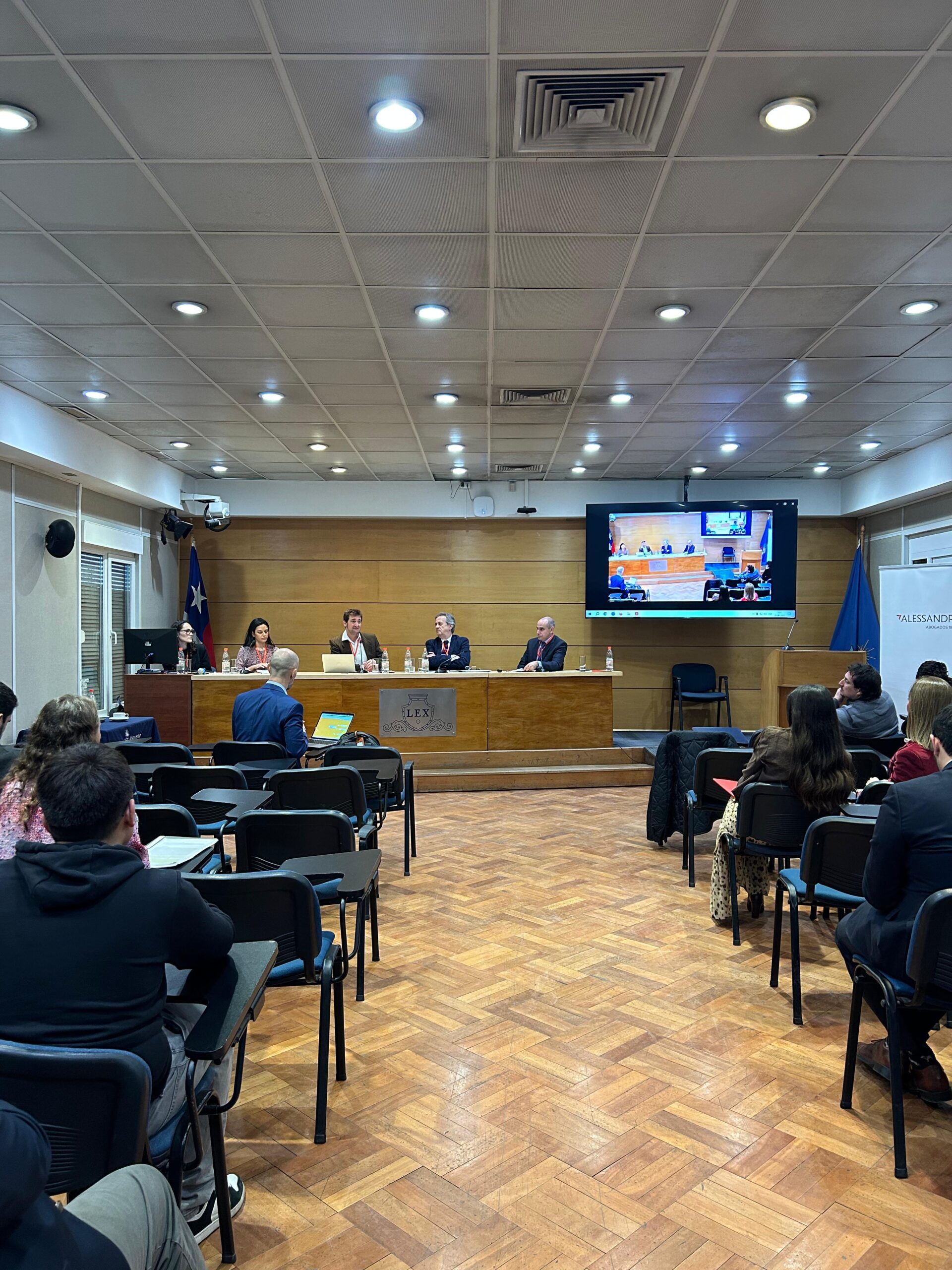/ CyberSpaceCamp™ Santiago 2025: Experts Discuss AI and Data Protection in Latin America
September 1, 2025CyberSpaceCamp™ brought together experts from the legal, academic, and technological fields to discuss the legal challenges posed by artificial intelligence and data protection in Latin America. The event highlighted the importance of regulation, regional cooperation, and the creation of specialized agencies to address these challenges.
CyberSpaceCamp™ Santiago 2025 was attended by Daniel Álvarez, national director of Chile’s National Cybersecurity Agency, academics from the University of Chile’s Law School, and foreign guests.
CyberSpaceCamp™ is an initiative of iTechLaw, held every two years in Sao Paulo, Lima, and Santiago, which seeks to create spaces for conversation about the legal challenges posed by digital transformation.
The program brings together legal professionals, academics, and representatives from the technology sector to analyze topics such as artificial intelligence, privacy, and data protection. In its eleventh edition, the event in Santiago, Chile, organized by Alessandri Abogados in conjunction with the University of Chile Law School, was attended by national and international experts. The day began with a welcome session.
Rodrigo Velasco, managing partner of Alessandri Abogados and Co-Chair of the Latin American Committee of iTechLaw, greeted and introduced the guests; the dean of the University of Chile Law School, Pablo Ruiz-Tagle, shared personal experiences with the use of artificial intelligence and reflected on its impact on law; Professor Santiago Schuster Vergara provided an academic perspective on regulatory challenges. In addition, an institutional greeting was transmitted from Argentina by Diego Fernández, president of iTechLaw.
AI Regulation and Intellectual Property
The first panel, entitled A New Deal Between Rights Holders and Big Tech?, addressed the challenges posed by generative artificial intelligence in the field of intellectual property from different perspectives, including academia, music, and commerce, covering the European, US, and Latin American contexts and commenting on the influence it has had in the region. The tensions between rights holders and technology platforms were discussed, as well as the legal and technical mechanisms available to protect the works used in training AI models.
Santiago Schuster Vergara, associate professor in the Department of Commercial Law at the University of Chile, presented a conceptual approach to the phases of exploitation of pre-existing works (input) and generation of new content (output), highlighting the need for opt-out mechanisms for rights holders.
Alex Pessó, Legal and Corporate Affairs Director for Chile and Peru, spoke about the responsible use of AI, risk mitigation measures in generative models, and legal exceptions for data mining in different jurisdictions.
Rodrigo Velasco complemented the discussion with a practical look at the challenges faced by law firms and rights holders in relation to large technology platforms.
The panel was moderated by Laura Hernández Bethermyt, senior associate in the Intellectual Property group at Alessandri Abogados.
Personal data protection in Chile and the region
The second panel focused on the new personal data protection law in Chile and the creation of the National Data Protection Agency.
Under the title “Experiences in the region and lessons for proper implementation,” regulatory models and best practices were discussed from different perspectives. This took into account the experience of other countries in the region, such as Argentina and Brazil: Rodrigo Azevedo, a member of iTechLaw and ABPI, shared Brazil’s experience in implementing its personal data protection law.
He noted that the country is still in the process of implementation, which has taken several years due to its complexity and scope.
Macarena Gatica, partner at Alessandri Abogados and director of AMCHAM, addressed the challenges faced by companies in Chile under the new legal framework and highlighted the need for adaptation and compliance in an evolving regulatory environment.
Danielle Zaror, deputy director of the Center for Studies in Law, Technology, and Society at the University of Chile, offered an academic perspective on the role of the future data protection agency and the challenges that have arisen during the implementation process, especially in the context of the Ministerial Committee responsible for this legislation.
Diego Fernández, president of iTechLaw, participated virtually from Argentina. He highlighted the progress and challenges his country faces in this area, noting that a bill to update Argentine legislation on personal data protection is currently under discussion.
The event was moderated by María Ignacia Ormeño, associate in the Technology group at Alessandri Abogados.The event concluded with remarks by Daniel Álvarez, National Director of the Chilean Cybersecurity Agency, who praised the event as a key forum for dialogue between academia, the private sector, and the authorities. “We are in open conversation with the CMF, the pension supervisory authority, and Subtel to ensure that the mandate given to us by law to have a single window is a reality,” said the director at the close of the day.
- Rodrigo Azevedo, Rodrigo Velasco, Laura Hernández, Pablo Ruiz-Tagle, Santiago Schuster and Alex Pessó
- Rodrigo Azevedo, Danielle Zaror, Daniel Álvarez, Macarena Gatica, M Ignacia Ormeño and Rodrigo Velasco
- Rodrigo Velasco, Laura Hernández, Santiago Schuster and Alex Pessó
- Pablo Ruiz-Tagle
- Daniel Álvarez
- M Ignacia Ormeño, Rodrigo Azevedo, Macarena Gatica y Danielle Zaror
